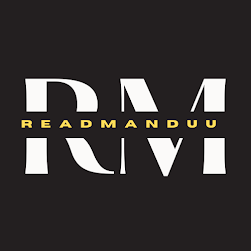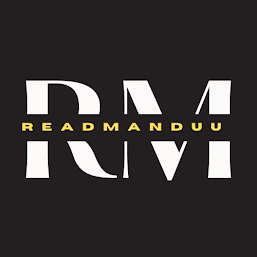When a person or organization must decide between acting unethically or illegally in order to make money and refusing to do so and possibly losing out on financial gain, the phrase "Dirty Hands, Clean Money" refers to the moral conundrum that results.
Introduction
Money obtained illegally or unethically is referred to as "dishonest money," whereas cash earned legally and morally is referred to as "clean income.".
The phrase "dirty hands, clean money" is more relevant than ever in the business and financial world of today. The pressure to turn a profit can be great due to the rise of global capitalism and increased market competition. This may prompt people and organizations to act in dubious or even illegal ways in order to gain an advantage.
Additionally, the development of the internet and technology has made it simpler for people and businesses to engage in illegal activities like tax evasion, fraud, and money laundering. It is also getting harder for people and organizations to hide their illegal or unethical activities due to the rise of corporate social responsibility and increased public scrutiny. Dirty Hands Clean Money - Dishonest Money - Clean Income.
Due to this, it is essential for people and organizations to be aware of the ethical and legal ramifications of their choices and to act accordingly. This entails being aware of the distinction between "clean income" and "dishonest money," as well as deciding to pursue legal and moral means of obtaining financial gain.
I'll sum up by saying that in today's business and financial environment, the discussion of "dirty hands, clean money" is essential. Making ethical and legal decisions about how to make a living is more crucial than ever for people and organizations because of the pressure to turn a profit and the simplicity of engaging in illegal activity. Dirty Hands Clean Money - Dishonest Money - Clean Income.
What is "dishonest money"?
Money acquired illegally or unethically is referred to as "dishonest money.". These include, for instance, theft, fraud, bribery, money laundering, and tax evasion. Other names for this kind of money include "dirty money" and "ill-gotten gains.". ".
Contrarily, "clean income" is money obtained through morally and legally acceptable means, such as through a legitimate job, a startup business, or stock investments. It's money that was earned in a legal and ethical manner.
Money obtained dishonestly can have negative effects on the person or organization doing the dishonest thing as well as on society at large. Individuals who engage in illegal or unethical behavior may face criminal charges, fines, and even imprisonment. A person or business that is caught engaging in such behavior may also suffer reputational harm and lose the trust of clients, customers, and the general public. Dirty Hands Clean Money - Dishonest Money - Clean Income.
On a social level, illegal or unethical behavior can result in a decline in trust in the financial system, as well as social injustice and income inequality. Additionally, tax evasion and money laundering can be used to finance terrorist organizations as well as criminal organizations, which can result in an uptick in crime and violence.
To put it simply, obtaining money through dishonest means can have detrimental effects on both the person or organization involved and society at large. Understanding the ethical and legal repercussions of one's actions is crucial for both individuals and organizations, as it helps them make wise choices about how to generate income. Dirty Hands Clean Money - Dishonest Money - Clean Income.
How "dishonest money" undermines the economy?
"Dishonest money" can have a variety of detrimental effects on people, businesses, and the economy as a whole. These are a few of the ways it might hurt these groups:
Individuals: Using illegal or unethical means to obtain money can result in legal trouble, heavy fines, or even jail time. A person may also lose the trust of their clients, customers, and the general public, which could harm their reputation.
Companies: Businesses that engage in illegal or unethical activities to obtain money risk fines, legal repercussions, and a decline in business. A company may also suffer reputational harm and lose the confidence of its clients, customers, and the general public.
The economy: By compromising the stability of the financial system and reducing tax revenue, money laundering and tax evasion can harm the economy. Furthermore, money earned through illegal or unethical means can help fuel social injustice and income inequality.
Financial and legal repercussions: Making use of "dishonest money" practices can have serious financial and legal repercussions. Money launderers may be hit with fines and jail time, as well as asset forfeiture. Additionally, organizations or people who commit fraud or embezzlement may be subject to fines and civil and criminal penalties.
The bottom line is that "dishonest money" practices can have a detrimental effect on people, businesses, and the economy as a whole. Such actions can have serious financial and legal repercussions as well. Understanding the ethical and legal repercussions of one's actions is crucial for both individuals and organizations, as it helps them make wise choices about how to generate income. Dirty Hands Clean Money - Dishonest Money - Clean Income.
How to identify "dishonest money"?
The integrity of the financial system and the economy must be safeguarded by recognizing "dishonest money" and avoiding it. Observing and avoiding "dishonest money" can be done by using the following advice and tactics:.
Recognizing warning signs: Keep an eye out for warning signs like large or unusual transactions or transactions that don't seem to fit with a customer's typical business or personal activities.
Performing due diligence entails carefully: Investigating a client or a company before entering into any business dealings with them. This entails investigating their history, standing, and financial situation.
Putting into practice AML (Anti-Money Laundering) and KYC (Know Your Customer) policies: AML and KYC policies work to stop money laundering and other financial crimes by confirming customers' identities and keeping an eye out for unusual activity in transactions.
Following transparency: Be open to scrutiny and transparent in your business dealings. This will help to foster an atmosphere of integrity and stop any illegal activity.
Regulation education: Continue to educate yourself on the rules and laws pertaining to financial crimes such as money laundering. This will make it easier for you to comprehend the requirements for spotting and reporting suspicious activity.
It is impossible to overstate the value of openness and diligence in halting the flow of "dishonest money.". Transparency makes it simple to spot any illegal activity and contributes to the development of an ethical culture. By using due diligence, people and organizations can be sure that the people they are doing business with are trustworthy and have a solid history. Individuals and organizations can contribute to safeguarding the integrity of the financial system and the economy at large by putting these strategies into practice. Dirty Hands Clean Money - Dishonest Money - Clean Income.
The importance of "clean income"
In order to support a sound and equitable economy, it is essential to generate income using moral and legal means, also referred to as "clean income.". "Clean income" has some advantages, such as:.
Legal compliance: Obtaining wealth through moral and lawful means guarantees that people and organizations are abiding by the law and avoiding possible fines or penalties.
Ethical conduct: Making money legally and ethically encourages honesty and integrity and helps to foster a culture of trust in commerce and finance.
Economic expansion: "Clean income" fosters economic expansion by encouraging fair competition and ensuring that people and businesses are making investments and spending money in ways that are advantageous to the economy.
Social justice: "Clean income" helps to advance social justice by ensuring that people and organizations are paying their fair share of taxes and by lowering income inequality.
Reputation: "Clean income" contributes to maintaining the public's trust as well as the reputations of individuals and organizations.










0 Comments
If you have any doubts please let me know.